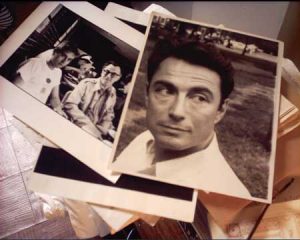
Though he never gained the truly widespread fame that his fellow Beats Jack Kerouac, Allen Ginsberg, and William Burroughs enjoyed, his work had an impact on contemporary poetics that continues to this day.
His poetry has earned praise from many. Jack Kerouac is quoted as saying (on the back cover of Corso’s “Gasoline”) “I think that Gregory Corso and Allen Ginsberg are the two best poets in America and that they can’t be compared to each other. Gregory was a tough young kid from the Lower East Side who rose like an angel over the rooftops and sang Italian songs as sweet as Caruso and Sinatra, but in words. ‘Sweet Milanese hills’ brood in his Renaissance soul, evening is coming on the hills. Amazing and beautiful Gregory Corso, the one & only Gregory the Herald. Read slowly and see.”

Bob Dylan has spoken about how the early Beat writing, and particularly Ginsberg’s Howl Ferlinghetti’s Coney Island of the Mind, and Corso’s Gasoline awakened him to new possibilities of the written word.
Corso was born in Greenwich Village, New York, on March 26, 1930. He had a turbulent childhood, his mother abandoning the family to return to Italy, and his father unable to offer much support. Gregory was a chronic runaway, and was in and out of jail during his adolescence.
He began reading & writing poetry while serving time in prison for theft. Shortly after his release, he met Allen Ginsberg in a Greenwich Village bar, and, after showing Ginsberg some of his poems, the two became close friends. Allen Ginsberg introduced Corso to Kerouac, Burroughs, and his other literary friends. Thus was the beginning of a great literary career.
Some of Gregory Corso’s major publications are:
- “The Vestal Lady on Brattle & Other Poems, 1955
- Gasoline, 1958
- The Happy Birthday of Death, 1960
- The American Express, 1961
- Long Live Man, 1962
- Elegaic Feeling American
- 1970
- The Herald of the Autochthonic Spirit, 1981
- Mindfield: New and Selected Poems, 1989
Here’s some more info on Gregory Corso:
- tributes to Gregory by fellow poets in Woodstock Journal, 2000 – 2001
- Robert Creeley’s remembrance of Gregory Corso. Includes some links too.
- Gregory Corso’s page at the Modern American Poetry site
News stories:



